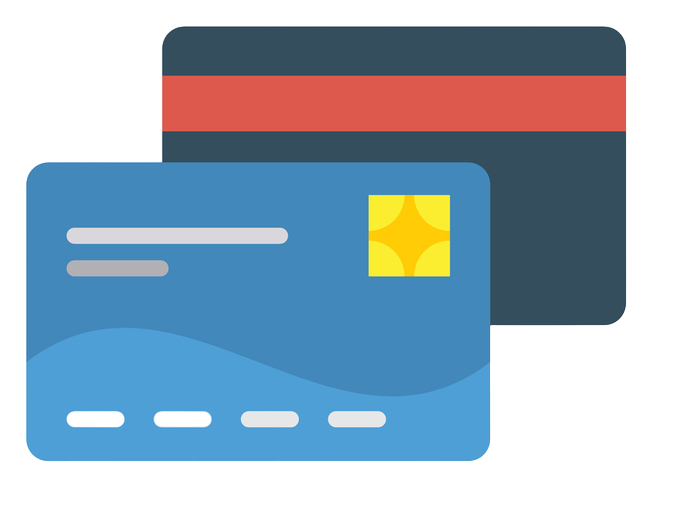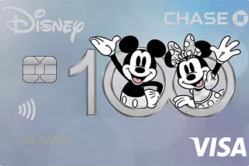The Military Wallet has partnered with CardRatings for our coverage of credit card products. The Military Wallet and CardRatings may receive a commission from card issuers.
When you’re trying to build credit as a young adult, a student credit card could be one of your best options. However, recent legislation has drastically changed the way students and individuals under the age of 21 can apply for, and qualify for, new credit.
Not too long ago, credit card issuers offered students free t-shirts, koozies, slices of pizza, and other random goodies as a reward for applying for a credit card. Rules have changed, and applying for a student credit card is a little more strict now. This is a good thing, as many students took on more than they could handle.
Specifically, the Credit CARD Act of 2009 now requires credit applicants under the age of 21 must have a co-signer who is willing to accept joint liability for charges made. Those who want to apply independently, on the other hand, must submit proof of income and prove their ability to repay.
While these changes were originally meant to improve fairness and transparency, they have also created a barrier that has made it harder for young people to access credit.
Fortunately, student credit cards have helped bridge the gap for young adults who simply need a safe way to build their credit from scratch. Although you still need a co-signer or source of income to apply, they are usually easier to qualify for compared to other types of unsecured credit cards.
Featured Credit Cards for College Students
The following list includes some of the best student credit cards – offers that include good rewards programs, have reasonable interest rates, and no annual fees. When used properly, they can help you learn to use credit responsibly and help you build your credit score.

Compare the rates, fees, and rewards of top credit cards for military servicemembers and veterans, including cards with waived annual fees under the SCRA.
How Student Credit Cards Work
If you’re in the market for a student credit card, you’ll be happy to know there are plenty of options available. Major credit issuers such as Capital One, Chase, and Citibank, all offer cards built to meet the unique needs of college students. Here are some other facts that describe the vast majority of student credit cards:
Student credit cards may offer higher interest rates – Since student cards are geared to young people with little to no credit history, they often charge higher interest rates than average.
Student cards generally offer lower credit limits – Students who use student cards may only qualify for a small line of credit at first. However, you can sometimes earn a credit line increase after using credit responsibly for a period of several months or years.
Student cards are fairly easy to qualify for – Although the best rewards credit cards and travel cards are generally only available to those with good or excellent credit and a full credit history, student cards and their simple terms make qualification easy.
Some student credit cards offer special perks and rewards – Although most student cards offer few perks, a handful offer rewards programs and benefits such as a free FICO score on your monthly statement. In order to meet the unique needs of students, some cards in this category also offer budgeting and spending tools that can help you learn to use credit responsibly.
Benefits of Opening a Credit Card Account
I don’t believe every student should get a credit card, but I believe that they should consider one if they can use it responsibly. I opened my first credit card while I was in college and used it to help build a strong credit score. I believe that when used properly, credit cards have many benefits and are a great tool that can help teach financial responsibility.
Benefits include helping you build your credit score, extended warranties on purchases made with your credit card, cash rewards, integration with budgeting tools, ability to dispute charges, limits on liability against fraudulent activities on your card, and other consumer protections. Credit cards can also be used as an emergency source of funds – which is much better than being stranded or getting a payday loan from the local loan shark.
Opening a credit card may be a good idea if:
- You have the ability and conviction to pay the balance in full each month.
- You have the discipline to use it only for specific purchases (shop with a plan, not because you can).
- You need a safe source of emergency funds.
- You want to build a strong credit score through responsible credit card use.
Who Should Not Get a College Credit Card:
Credit cards aren’t for everyone. If you don’t have money in the bank or a source of income, then stay away! Here are some other reasons not to get a student credit card:
- Because you want to live the “high life.”
- Because you get a free t-shirt or another giveaway.
- If you have a shopping addiction or are a compulsive spender or gambler.
- If you don’t plan on paying the balance in full every month.
What to Consider When Choosing a Student Credit Card
When you’re in the market for a student credit card, it’s important to find one that meets your specific needs. Here are some factors you should consider before you sign on the dotted line:
Spending Habits – The student card that’s best for you will depend heavily on your spending habits. If you plan to pay your balance in full each month, for example, the interest rate you’ll pay may not be a big deal. Instead, look for a card with no annual fee or special perks, such as a rewards program. If you plan to carry a balance, choose a card with the lowest interest rate you can find.
Rewards – If you hope to earn rewards while you build a credit history, several student credit cards offer cash back as a percentage of your everyday spending. These programs often come with limitations, however, which is why it’s important to read all of the fine print before signing up. Things you should know including how points are earned, how you can redeem them, and what kind of rules or expiration dates apply.
Interest Rate – Even if you don’t plan on carrying a balance, you should know and understand your card’s interest rate, which is commonly referred to as the Annual Percentage Rate (APR). Knowing your APR, and learning more about how credit card interest will be charged to your account, can help you formulate a plan to pay as little interest as possible.
Extra Charges and Fees – Before you sign up for a new student card, you should understand all of the fine print, including any additional charges or fees. Since late fees, over-the-limit fees, and foreign transaction fees are the norm for most cards, it’s important to educate yourself on how to avoid them.
Credit Limit – Most student cards offer a low credit limit at first, although you can usually ask for credit line increases over time. Regardless, understanding your credit limit can help you avoid getting hit with an over-the-limit fee.
Annual Fees – Many student cards charge an annual fee simply for being a cardholder. If you want to avoid paying this, look for cards that are fee-free. Doing so will help you keep costs down over time.
Getting a Student Credit Card – What You Should Know
When you’re shopping for the perfect student credit card, one of the most important factors to consider is your personal credit score. For example, if your credit needs work, you may be better off applying for a secured credit card at first.
If your credit history is good but short, on the other hand, a student card is probably your best bet. Either way, your best course of action is to find your credit score first and apply for the appropriate card.
As mentioned above, individuals under the age of 21 may need a co-signer to qualify for their first student credit card. In most cases, the perfect co-signer will be a parent or guardian who has your best interests in mind. If you want to apply on your own instead, you’ll need a verifiable source of income. While that isn’t a problem in normal circumstances, full-time college students don’t always have the time to work a full-time or part-time job.
Student credit cards give new credit users a meaningful way to build their credit scores over time. However, not all offers are created equal, which is why it’s important to see how each one stacks up to the next. If you’re in the market for a student card, make sure to compare all of the available offers and read the fine print.
Tips for Using College Credit Cards
The following tips will help students use credit cards wisely and begin creating a strong credit history.
- Begin with a low limit such as $500.
- Set limitations on what the card can be used for (books and lab fees, yes; pizza & beer, no).
- Only buy items you can pay cash for.
- Never carry a balance.
- Understand the fine print – fees, interest rates, etc.
Although new credit is crucial when you’re first starting out, what you don’t know can hurt you.
The Military Wallet has partnered with CardRatings for our coverage of credit card products. The Military Wallet and CardRatings may receive a commission from card issuers. Some or all of the card offers that appear on The Military Wallet are from advertisers. Compensation may impact how and where card products appear, but does not affect our editors’ opinions or evaluations. The Military Wallet does not include all card companies or all available card offers.



About the comments on this site:
These responses are not provided or commissioned by the bank advertiser. Responses have not been reviewed, approved or otherwise endorsed by the bank advertiser. It is not the bank advertiser’s responsibility to ensure all posts and/or questions are answered.